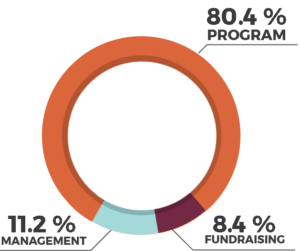Here are five introspective questions to consider as you engage in conversations about child trafficking and sexual exploitation.
Words can hurt or heal, inspire or distract, discourage or encourage those around us. That is why, as we seek to engage in conversations about a topic as simultaneously delicate and abrasive as child sex trafficking, we should approach our conversations with thoughtfulness. Here are five questions to consider as you approach this topic in conversation.
What is my personal context as well as the context of those around me?
One in six men and one in four women are estimated to be survivors of child sexual abuse. Be aware of the personal nature this topic can take on with anyone you engage with. Also, remember to check in with yourself as you talk and be cognisant of any charged emotions you may feel or convey. You care about this issue because you care about people. Don’t forget to care for yourself and the people right in front of you, too!
Who am I blaming?
In the face of injustice it’s easy to ball up our rage, take aim, and decidedly assign blame to a specific target. It’s all too easy to blame traffickers, sex-buyers, the parents, corruption, greed, poverty, and so on. While each of the aforementioned may play its part in weaving together the utter tragedy that is the world of child sex trafficking, the core of the issue is brokenness. We live in a broken world inhabited by broken people.
As we fight for justice our hearts still break for each individual involved. In the darkness there is only pain and without the light of Christ all will continue in brokenness. The grace of the Gospel is the true answer. Its enemy, sin, the rightful target to blame.
(We understand not all of our supporters hold Christian views and hope that we can agree with unity that children should be rescued from these situations, justice should be pursued then enforced and that human dignity should still be upheld regardless of circumstance or actions.)
Should I use the term “victim” or “survivor”?
We refer to children currently trapped by sex trafficking as victims. A situation beyond their control is resulting in their abuse and exploitation and without intervention, the abuse will continue. This choice of terminology is not meant to infer that they are not strong or not survivors prior to rescue – but we must acknowledge victimization in order to end it.
After ending the cycle, and in life after rescue, it is healthy and necessary to move past the victimization in both thought and terminology. We insist on always calling individuals we work with ‘survivors’ as opposed to ‘victims’ after rescue as to not label them in a way that reminds us and them of the former power dynamic held over them. By using the term survivors, we affirm that they are champions in all that they have overcome.
Am I practicing empathy?
Terminology matters, but perhaps what matters even more is how we relate to each survivor. Are our language and thoughts around them ‘othering’ or inclusive? Do we relate ourselves, our humanness and uniqueness to the survivors as they share their stories? Or do we consider them to be different; do we judge their choices or look down on their circumstances? Pay attention to where your mind goes and train your brain toward empathy and inclusion where it needs it. We must stand beside survivors as equals to truly fight for justice.
How do I want to help?
Learning about child sex trafficking ignites the kind of outrage in each of us that demands action. Before bringing this topic up with people in your circle, think of some action items that you and those around you can step up and get involved in! Check out this blog for six action items anyone can participate in!
Your words matter – having healthy and informed conversations about child sex trafficking is the foundation to ending this atrocity in our world. Your voice is crucial in this fight. Thanks for joining us and being a warrior for freedom!
Investing with Integrity
Over the last three years, 80.4% of every dollar we spent was used for programs that benefit the children we defend.
Destiny Rescue is recognized by Guidestar, Charity Navigator and the Better Business Bureau for our commitment to transparency, accountability and financial integrity.



 Australia
Australia New Zealand
New Zealand United Kingdom
United Kingdom
